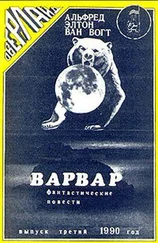The Chinese empire is distinguishable among all others for its Wall of China. What one needs first of all is to be protected.
Chinese edifices are distinguishable for their roofs. What one needs first of all is to be protected.
The Chinaman never lets himself go, but is always on his guard; he always has the air of belonging to a secret society.
Everywhere there are great screens, then there are again smaller ones, and naturally triple labyrinths. What is needed first of all is proper protection.
Though warlike when it was absolutely necessary, China was always a peace-loving nation. ‘With good steel, one does not make nails. Of a young man of worth, do not make a soldier.’ Such is public opinion. All Chinese education lays so much stress on pacifism that the Chinese had become cowards (for a time), and most unblushingly. 9
The Chinaman, who can carve splendid and sedate camels, as well as horses, with a great deal of humor, has not been able to render the lion. His lions make grimaces, but they are not lions. They are more like eunuchs.
Natural ardor, hot blood and natural aggressiveness, the Chinaman is unable to grasp.
China is so essentially peaceful that it is full of bandits. If the Chinese people were not so peace-loving, they would take arms at all costs and restore order. However, they would rather not.
The peasant, the small tradesman, finds himself ruined, plundered, or even ten times plundered. Yet after the tenth time he still has a little patience left in reserve.
The Chinaman lives comfortably in the midst of this insecurity in the interior of China, where you risk your property and your life, and which is so insupportable and distressing to the European. As a player of games, he knows how to behave as a toy.

It is in Pekin that I understood the willow, not the weeping willow, but the straight willow, the Chinese tree par excellence .
The willow has something evasive about it. Its foliage is impalpable, its movement resembles a meeting of breezes. There is more of it than one sees, more than it shows of itself. It is the least ostentatious of trees. And though always shivering (not the brief and anxious shiver of the birches and of the poplars), it does not look as if it were contained in itself, nor attached, but always sailing and swimming so as to maintain its place in the wind, like fish in the river’s current.
It is little by little that the willow educates you, giving you its lesson each morning. And a repose made of vibration seizes you, so that when it ends, you can no longer open the window without feeling a desire to weep.

In things that seem at first to be almost neutral, but which are immediately revealed to him (to us after a while) with a heartrending mystic sweetness, the Chinaman has placed his infinite — a just and enjoyable infinite.
Jade, polished stones that seem moist but not shiny, clouded and not transparent, ivory, the moon, a single flower in its flower pot, little branches with their multiple twigs, their tiny leaves; thin, vibrating, far-off landscapes caught in a rising mist, stones pierced and as though tortured, a woman’s song heard faintly in the distance, plants under water, the lotus, the short, flutelike whistle of the toad in the silence, flavorless dishes, a slightly decayed egg, gummy macaroni, a shark’s fin, a light rain falling, a son who accomplishes the acts of filial piety and follows the rites in too exact a manner — so strained, this exactitude, it makes you faint — imitation in all its forms, plants made of stone, creamy flowers with corollas, petals and sepals of an irritating perfection; to have theatrical performances at court, played by political prisoners, obliging them to do it; delicious, half absent-minded cruelties — here is what the Chinese has always liked.

The Chinaman, among all the peoples of the yellow race, has something about him that is powerful, and particularly that is heavy — he himself somewhat barrel-shaped with his cylindrical forms, when he begins to get on in years.
Beside the great Chien Meng gate at Pekin, the Arc de Triomphe seems light and removable. A Chinese bathtub in the South is often a great earthen pot (from which water is dipped by little jugfuls that one throws on one’s body), that is all, a great pot, oh, how heavy! and it seems as if it would be easier to move a grand piano about. The Chinaman gives the impression of something squatting. His sculptured lions are like toads that grimace. His bronze cranes, his geese weigh on the ground like men, human birds that have ceased to count on anything but the solid earth. His furniture is stocky. His lanterns large and big-bellied, and every house has two or three of these barrels suspended in the air that slowly oscillate.
In miserable, absolutely bare interiors sometimes there is a great red ewer, like a patriarch enthroned.
The Chinese characters on Japanese posters are thin, drawn with fine strokes. On the Chinese posters, the characters are pot-bellied, real tumblers, like a hippopotamus’ bottom, and stand crushed down one on top of another, with a burlesque, heavy self-assurance, like the gravest and the most disturbing notes of the double-bass.
No city has gates as massive as those of Pekin.

You must really get it into your head that the Chinaman is a most sensitive creature. He has kept the heart of a youngster. For four thousand years he has kept the heart of a youngster.
Is it a good child? Not especially. But he is impressionable, is the Chinaman, a trembling leaf makes his heart rock, a fish sailing slowly by makes him almost swoon. He who has not heard Mei-Lan-Fang does not know what gentleness is, heartrending gentleness, decomposing, the liking for tears, the painful refinement of grace.
And even a textbook on painting, such as that of Wang-Wei, or the one by Ly-Yu, entitled The Garden of the Mustard-seed , is done so devoutly and so movingly that it makes the tears come into one’s eyes.
A trifle hurts the Chinaman’s feelings.
A youngster is terribly afraid of humiliations.
Who has not felt himself to be Poil de Carotte? The fear of humiliations is so Chinese that it dominates their civilization. They are polite for that reason. To avoid humiliating the other. They humiliate themselves to avoid being humiliated.
Politeness, that is a way to prevent humiliation. They smile.
They are not so much afraid of losing face as of making others lose it. This sensitiveness, really unhealthy from the European viewpoint, gives a particular aspect to their whole civilization. They have the sense and the apprehension of ‘people are saying.’ They always feel they are being observed. .. ‘When thou goest through an orchard, take care, if there are apples, to put thy hand to thy trousers, and if there are melons, to touch thy boots.’ They are not conscious of themselves, but of their appearance, as though they themselves were on the outside and observing themselves from there. From the earliest days this order existed in the Chinese army: ‘And now look fierce!’
Even the emperors, when there were emperors, were afraid of being humiliated. Speaking of Barbarians, of Koreans, they said to their messenger: Arrange so that they do not laugh at us. — To be the laughing-stock. The Chinese are offended more easily than anyone and their literature contains, as one might expect on the part of men who are polite and easily hurt, the most cruel and infernal insolence.
Читать дальше













